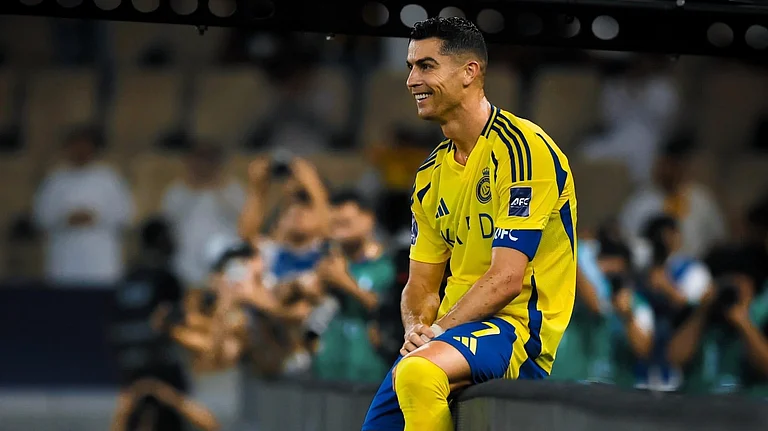Ahint of rain thinned the modest crowd that came to hear P.V. Narasimha Rao in Latur town. But it did not dampen the Prime Minister's spirit as he launched into his campaign speech, appealing to the audience to return his 'stable' government to power. "Give me stability. I will give you prosperity. Don't experiment now. Send us back," Rao told the people of Latur, a constituency still recovering from the earthquake of 1993, which destroyed 32,000 houses and nearly wiped out 52 villages.
Latur, Rao's first campaign venue, is the constituency of Lok Sabha Speaker Shivraj Patil. Seeking his fourth term from Latur, Patil is pitted against two Rajya Sabha MPs—Dr Gopalrao Patil, a paediatrician who is the BJP's candidate, and Bapu Kaldate of the Janata Dal. "It is like tightrope walking," says Shivraj Patil; about the agenda he has set for himself: a continuation of his role as Speaker which demands impartiality and a distance from party politics.
But the real tightrope is a combination of factors which includes the recent rebellion of state election campaign chief Vilasrao Deshmukh who was not given a ticket. This has widened the differences between the Marathas and the Lingayats, two dominant castes. Deshmukh is a Maratha, Shivraj Patil a Lingayat. "If Deshmukh campaigns for his uncle Gopalrao, the Speaker could have problems," says local shopowner Vijay Kulkarni, referring to the caste divisions and Congress infighting.
"Caste played an important role in the defeat of Vilasrao Deshmukh in the last assembly elections. It cannot be overlooked," says Gopalrao Patil, whose campaign emphasis is on the Congress failure in earthquake rehabilitation work. For Shivraj Patil, another problem will be the incursion of other parties in a constituency which, with the exception of 1977, was traditionally held by the Congress: the Janata Dal won two assembly seats here, while the BJP and the Sena have a seat each.
Shivraj Patil's predicament is shared by the Congress heavyweights across Maharashtra. If former chief minister Sharad Pawar's absence was noticed at Narasimha Rao's campaign launch for Shivraj Patil, he is not a 'negative' factor here.
But, for many others, the 'Pawar' hand is a major factor. For instance, for former chief minister Sudhakarrao Naik, who is standing for election from Washim in the Vidarbha region. Though Naik's family has a major hold here, the Congress could get only two assembly seats, besides which Naik has to pay the price of crossing swords with Sharad Pawar. Naik, a former governor of Himachal Pradesh, is not alone in Pawar's hit list. A few other sitting MPs share pride of place: Prataprao Bhosale, who is seeking his fourth term from the sugarbelt seat of Satara which has been held by the Congress since 1962. Rebellion in his constituency cost the Congress four assembly seats in 1995, including Wai, which was contested by Bhosale's son. Major Sudhir Sawant, who is contesting the Rajapur seat in Maharashtra's coastal Konkan region, has also been a blatant critic of Sharad Pawar. Sawant created history when he wrested Rajapur, held by Madhu Dandavate for five terms. Sawant then gravitated to Bhosale—and his colleagues in the anti-Pawar lobby—who had helped him get the ticket.
Union Health Minister and MP from the Konkan region, A.R. Antulay, is also a traditional foe of Sharad Pawar. But, unlike Sawant, he has the goodwill of the Shiv Sena which since the 1990 assembly elections has made major inroads in this lush green underdeveloped region. The Sena has fielded a lightweight candidate in Anant Tare and left Antulay to battle it out with the more formidable Datta Patil of the Peasants and Workers Party (PWP), in this constituency of 10.84 lakh voters.
In Bombay, two high-profile Congress MPs are locked in tough tri-cornered electoral battles. Murli Deora, who is seeking his fourth term in Parliament, has a combination of factors against him. He is no friend of Pawar. He has to face Pawar supporter Marzban Patrawala, who is contesting on a Samaj-wadi Party ticket. While Patra-wala may wean some of the Congress votes, the BJP's Jaywantiben Mehta is also no pushover. Muslims, who are a factor in three assembly segments of this constituency of 70,3389 voters, still remain unhappy with Deora since the Bombay riots of 1993. But he generally has an ability to find a way out. "Murli manages. The moneybags help," comments a Janata Dal leader.
For Gurudas Kamat, the MP from Bombay North East, the contest is even tougher. Pitted against the BJP's dynamic All India General Secretary Pramod Mahajan and Republican Party of India leader Ramdas Athavale, a former minister, it is a crucial contest for all three. Sharad Pawar launched the Congress campaign from this constituency and has pitched in to help Kamat. The saffron alliance which Mahajan tailored, is focussing attention here to get its architect elected. And Athavale, who is criss-crossing the constituency on his bicycle, counts on the 30 per cent Dalit and Muslim vote in this constituency of 19.5 lakh voters, to get by. "I am confident this time. After my defeat in 1989, when I lost the Dalit votes, I have paid attention to the factors that went against me," says Kamat.
Civil Aviation Minister Ghulam Nabi Azad is contesting the Yavatmal seat in the Vidarbha region. It is no cakewalk for Azad who faces charges of being an outsider both from his opponents and within the Congress. "It's like a bride who has swept the house and cooked the food, but is suddenly thrown out and replaced by another," says a senior Congress leader. He refers to Uttamrao Patil, sitting MP, who has thrice won this seat. However, referring to the Pawar camp, the party leader adds that the fear of Sudhakarrao Naik (a neighbour in the region) being made a minister if the Congress forms the government, is making them help ensure that Azad wins and con -tinues in the ministry. They are also trying to keep Patil happy. Azad is pitted against the BJP's Najabhau Thakre, the minister of state for dairy development. Thakre has been carrying on with the outsider refrain, labelling Azad a 'Kashmir ka parcel'.
INTER-party squabbles are proving a problem for former Union Minister Mukul Wasnik, presently the MP from Suldhana. Wasnik has to contend with growing dissent in the ranks. The Congress was almost routed here in the last assembly election, with the Sena and Independents winning two seats, and the BJP one seat. Congress leaders here blame Wasnik for the defeats and internecine squabbles.
In western Maharashtra, which is the sug-arbelt of the state and has always been the Congress party's spinal column, two prestigious seats are being contested by two of the party's most high-profile candidates: Union Railway Minister Suresh Kalmadi in Pune and Sharad Pawar in Baramati. Kalmadi, a member of the Rajya Sabha is seeking a direct mandate for the first time. Kalmadi is a name behind a number of Pune's high-profile activities including the annual Ganesh festivals and the much-touted Sports City where one of the National Games was held. While his megascale efforts at privatisation—inviting corporate capital for city schemes, projects and festivals—have given Kalmadi a lot of publicity, this will be the first test of what the people think of him. Though Kalmadi does not face a mighty challenger in the BJP's Girish Bapat, an MLA from the city, his equations are also not very cordial with Pawar anymore. Kalmadi, who has gradually distanced himself from the former chief minister, has the uncomfortable memory of Pawar dropping the last Congress incumbent here. Congress spokesman V.N. Gadgil was defeated by the BJP's Anna Joshi in 1991 in this pensioners' paradise.
In Pawar's home constituency, Baramati, there is no doubt about the former chief minister's victory, only a question of the margin. Against him in a one-to-one fight is Shankarrao Vajirao Patil, a former Congress MP. Patil has the advantage of all parties supporting him against Pawar. It will not be enough to topple the giant, but as Vilasrao Deshmukh says: "It will cut his margin. That is what matters."


























